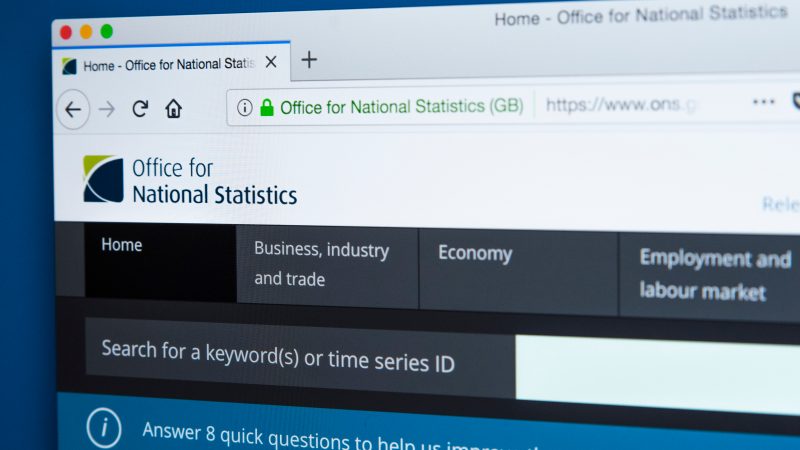
As Boris Johnson strengthens coronavirus restrictions and Covid deaths continue to rise, it is time to admit that the pandemic is decimating disabled people – and it is time to do something about it. Recent analysis from the Office for National Statistics shows that disabled people have accounted for six in every ten Covid deaths in the UK. The same research reveals that, as a young disabled woman, I am 11 times more likely to die from Covid than my non-disabled friends.
The ONS figures reaffirm what so many of us disabled people have said throughout this pandemic: our lives are seen as expendable. The government’s lack of regard for disabled people isn’t surprising, but where is the public outcry over our lives? These statistics haven’t dominated the news. Yet a clip of Matt Hancock and Sky News’ Kay Burley talking about coronavirus sex rules secured nearly 80,000 views in just a few hours. News of disabled people dying in huge numbers get a few hundred retweets. This is not to judge the public, but more a question: why isn’t such a major news story breaking through?
The ONS data, while tragic, is not the only instance where deaths among disabled people have been largely ignored. When the government first admitted that the UK was in the grip of a pandemic, they simply ignored the deaths of disabled people in care homes and other institutions. April saw 18,000 excess deaths above average for the month in care homes, yet only 8,000 went recorded as Covid-related. Yet when we turned on the TV, or looked at social media, disabled people watched as the nation was told that while Covid was dangerous, it mainly affected those with ‘underlying conditions’. Viewers at home should not worry because it was we, ultimately expendable, disabled people who are the most at risk. Now we know the full extent: in the first five months of the pandemic, the UK experienced 58,000 excess deaths, the highest rate in Europe.
While the ONS has made clear just how stark the number of deaths among disabled people is, we should make it clear that the government has failed disabled people in a number of ways. It failed us with an ineffective shielding scheme, a broken social care system, the underfunding of services for disabled people, the removal of a duty of care and a huge lack of consultation with disabled people.
The price of this government’s refusal to effectively manage the pandemic has been disabled people’s lives – but also how we live. Having lived with severe chronic health conditions for the past few years, I was already adjusted to a more restricted life, spending the majority of my time indoors anyway. I had reached a point where, with regular medical appointments and support around the house, I had some semblance of independence and autonomy. I could work part-time hours and do the occasional trip out with friends. But since I was first sent the letter that identified me as ‘extremely clinically vulnerable’ to Covid at the start of the pandemic, my life has been very different – mostly characterised by fear and insecurity.
Although I am fortunate that I could shield with my partner, who has been allowed to work from home, it has been difficult for us both because I need so much more support. In order to manage my chronic health conditions, I’m treated across a number of different hospitals. It has taken a lot to access the treatment I need, sometimes on years-long waiting lists to be seen. Most of the appointments I was booked in for after March were cancelled. Some clinics simply discharged me. As a result, ongoing health issues haven’t been treated and I have seen my health go downhill.
Sometimes when I talk to non-disabled friends, it feels like people don’t understand why I am still being so cautious. But it’s hard not to feel scared as I watch the government not taking our lives seriously, acting without caution or care. Despite a fleeting focus on shielders at the beginning of the pandemic, we do not feature in any of the government’s recovery plans – including Rishi Sunak’s recent announcements. Many say we’ve been forgotten or left behind. But for a group that makes up nearly a quarter of the population, it’s hard to believe it’s not by design.
Early on in the pandemic, the government pushed through legislation to remove local authorities of the duty to provide disabled people with care, claiming that councils may “need to take difficult decisions and may need to be able to focus their resources on prioritising”. Our rights to social care weren’t just de-prioritised, there were warning signs that it could be our lives too. The guidelines for treating Covid patients showed that priority should go to those without underlying health conditions or learning difficulties.
Fortunately, this was quickly challenged by disabled campaigners. But these weren’t the only warning signs. There were also numerous cases of GP surgeries sending out ‘do not attempt cardiopulmonary resuscitation’ forms so that disabled people could sign away their right to treatment if they became ill with Covid, to make sure scarce ambulance resources could be targeted to non-disabled people.
The recent ONS figures must now be a call to arms for everyone. The government must develop a plan, led by disabled people, to ensure no more disabled people’s lives are lost. Importantly, we need an urgent public inquiry to look into how it is possible that our lives have been treated with such callous disregard.




More from LabourList
Antonia Romeo appointed to lead civil service as new Cabinet Secretary
‘If Labour is serious about upskilling Britain, it must mobilise local businesses’
Stella Tsantekidou column: ‘What are we to make of the Labour Together scandal?’